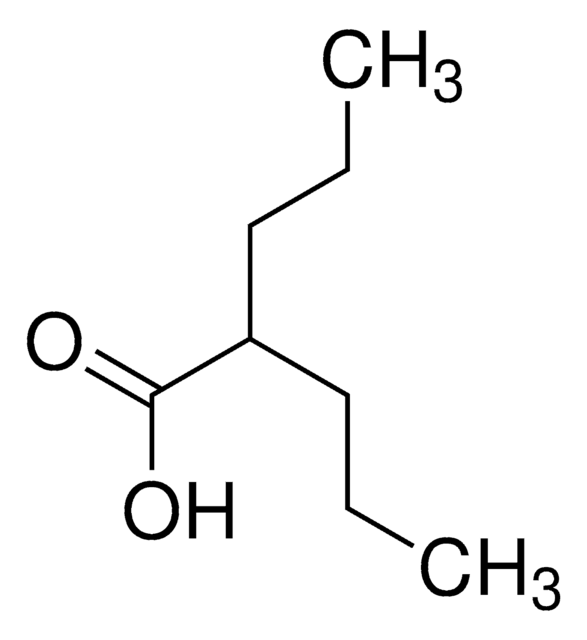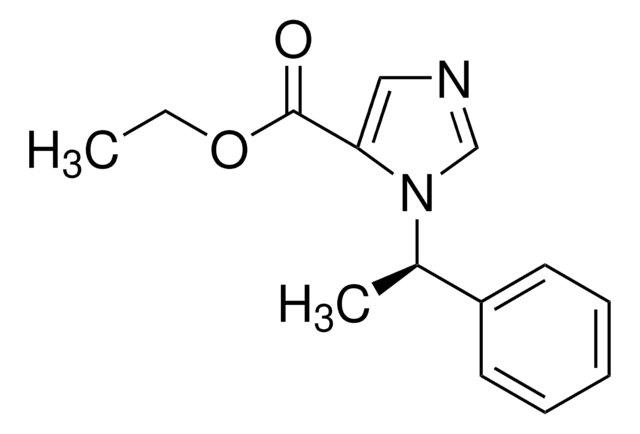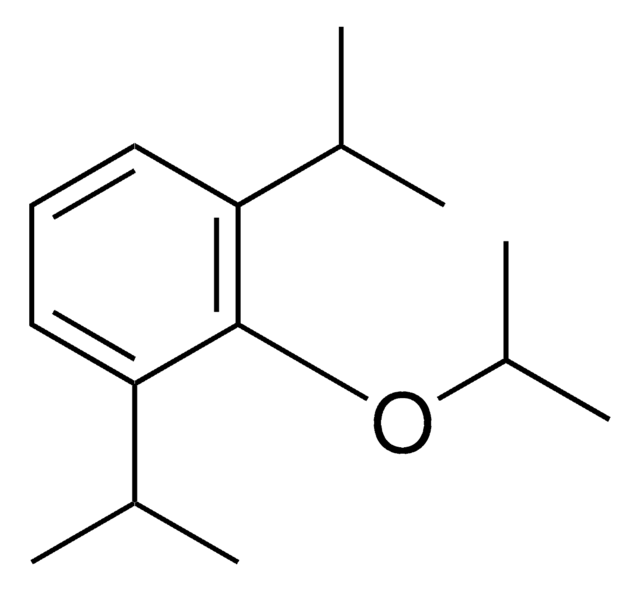Y0000016
Propofol
European Pharmacopoeia (EP) Reference Standard
Sinónimos:
2,6-Diisopropylphenol, 2,6-Bis(1-methylethyl)phenol, 2,6-Bis(isopropyl)phenol, Propofol
About This Item
Productos recomendados
grado
pharmaceutical primary standard
presión de vapor
5.6 mmHg ( 100 °C)
familia API
propofol
fabricante / nombre comercial
EDQM
índice de refracción
n20/D 1.514 (lit.)
bp
256 °C/764 mmHg (lit.)
mp
18 °C (lit.)
densidad
0.962 g/mL at 25 °C (lit.)
aplicaciones
pharmaceutical (small molecule)
formato
neat
temp. de almacenamiento
2-8°C
cadena SMILES
CC(C)c1cccc(C(C)C)c1O
InChI
1S/C12H18O/c1-8(2)10-6-5-7-11(9(3)4)12(10)13/h5-9,13H,1-4H3
Clave InChI
OLBCVFGFOZPWHH-UHFFFAOYSA-N
Información sobre el gen
human ... GABRA1(2554) , GABRA2(2555) , GABRA3(2556) , GABRA4(2557) , GABRA5(2558) , GABRA6(2559) , GABRB1(2560) , GABRB2(2561) , GABRB3(2562) , GABRD(2563) , GABRE(2564) , GABRG1(2565) , GABRG2(2566) , GABRG3(2567) , GABRP(2568) , GABRQ(55879)
¿Está buscando productos similares? Visita Guía de comparación de productos
Descripción general
Aplicación
Envase
Otras notas
Producto relacionado
Palabra de señalización
Warning
Frases de peligro
Consejos de prudencia
Clasificaciones de peligro
Acute Tox. 4 Oral - Eye Irrit. 2 - Skin Irrit. 2 - STOT SE 3
Órganos de actuación
Respiratory system
Código de clase de almacenamiento
11 - Combustible Solids
Clase de riesgo para el agua (WGK)
WGK 3
Punto de inflamabilidad (°F)
235.4 °F - closed cup
Punto de inflamabilidad (°C)
113 °C - closed cup
Elija entre una de las versiones más recientes:
Certificados de análisis (COA)
Lo sentimos, en este momento no disponemos de COAs para este producto en línea.
Si necesita más asistencia, póngase en contacto con Atención al cliente
¿Ya tiene este producto?
Encuentre la documentación para los productos que ha comprado recientemente en la Biblioteca de documentos.
Los clientes también vieron
Nuestro equipo de científicos tiene experiencia en todas las áreas de investigación: Ciencias de la vida, Ciencia de los materiales, Síntesis química, Cromatografía, Analítica y muchas otras.
Póngase en contacto con el Servicio técnico






